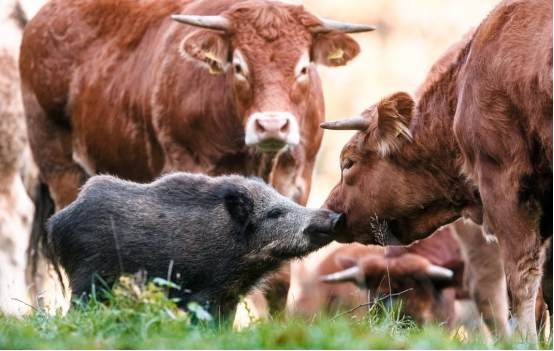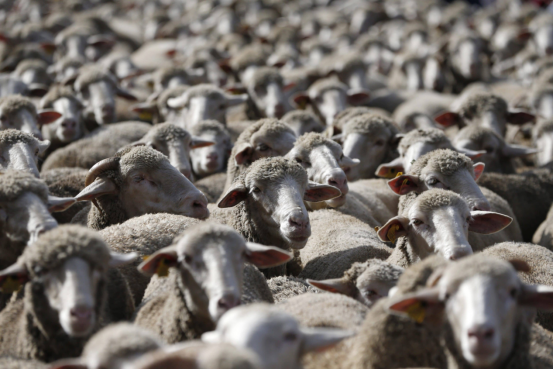Healthier livestock will seal the European Green Deal
By Martin Scholten
PUBLISHED 18:03 OCTOBER 27, 2020
As momentum gathers towards a more sustainable food system in Europe, the debate is in danger of excluding a key contributor to healthy ecosystems: livestock.

Contrary to popular perception and recent claims, cattle, sheep and swine can safeguard natural resources for food production and minimise agricultural emissions when kept in good health as part of a circular, regenerative system.
From digesting “circular feed” composed of otherwise wasted crop residues to replenishing organic soil matter through the smart use of manure, livestock can even double the ecological efficiency of our food systems, when they represent half of the agricultural production alongside crops.
As Europe looks towards a greener, more sustainable future, we must not miss the opportunity to maximise the benefits of livestock for the environment and the agri-food ecosystem, based on a natural circularity.
But this requires animals that are fit for this purpose, with customized health care to keep them in good condition for fulfilling this role. For such a transition towards sustainability, Europe needs a livestock farming system with animals that are healthier and better adapted to their environment, rather than fewer animals of the same kind.
Managing animal health is also one of the most substantial options for climate mitigation, with a potential to bring emissions down by 30 per cent if producers followed the same practices as the 10 per cent with the lowest emissions. This is because a better performance of the intestinal microbiome in healthy animals leads to more efficient digestion with lower levels of gut fermentation.
Not only does optimum health improve the productivity of food-producing animals, it also allows livestock to fulfil their “circular” role within the wider food and natural ecosystem.
As part of the European Green Deal, Europe should reap these benefits by transforming its livestock sector to be more circular, more sustainable and less wasteful through investing in innovative animal health care.
The first step towards achieving more sustainable livestock is to build greater resilience to disease.
Healthy animals need fewer resources like water, feed and medicine, while they also make a greater contribution to ecological processes through producing fertilizer and contributing to carbon storage with grazing.
Preventative health measures to protect animals are a critical component of sustainability, therefore, and include vaccination against diseases that do not prevent the trade of livestock or livestock products, as well as improved breeding for greater resilience.
The second step is to improve the performance of livestock as a digester of circular feed with an optimally functioning, healthy intestinal microbiome. A part of the capacity to enhance this function while also contributing to natural immunity, health and wellbeing is to improve and customize animal feeding regimes.
Sourcing the right feed will help reduce the lifecycle impact of livestock-based food products, and the right feed composition can also lower the emissions produced by animals as a result of digestion while boosting immune systems with nutritional supplements. All of this helps to contribute to less waste, greater productivity and lower emissions.

Herds of sheep pass through the streets of central Madrid during the traditional Fiesta de la Transhumancia. EPA-EFE//JAVIER LIZON
Finally, Europe can also transform its livestock sector by developing policies and regulation that support innovation in animal health as a key part of public and environmental health.
To start with, this might mean addressing the shortage of livestock focused veterinarians as well as investing in veterinary research and addressing the challenges that hinder new products and services from reaching the market.
To date, European sustainability strategies have tended to focus on reducing the environmental impact of livestock by simply reducing the numbers of livestock.
But a one-dimensional approach of reducing numbers will not be nearly as effective as transforming the role of livestock within food production for greater sustainability.
Europe needs an overhaul of its entire food system to become less wasteful and more circular, and livestock fit for that purpose are essential for such an ambition. Eventual reduction of specific livestock densities should be the result of rebalancing the food system from a resource sufficiency perspective, not the starting point.
From:https://www.neweurope.eu/article/healthier-livestock-will-seal-the-european-green-deal/







